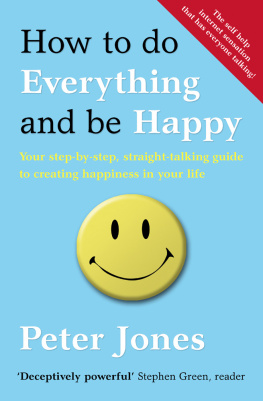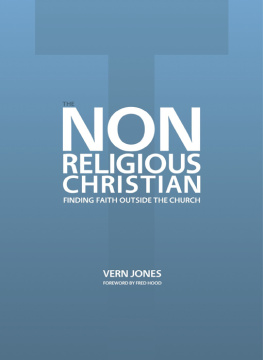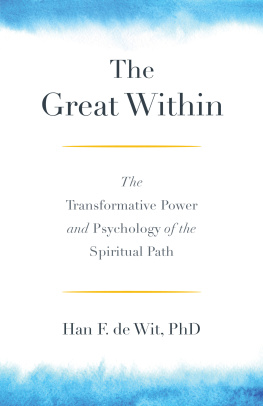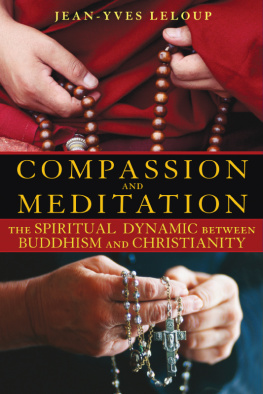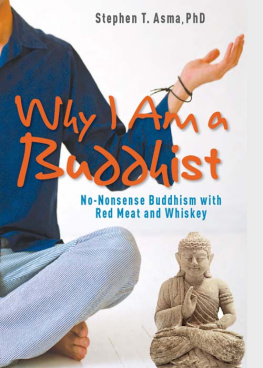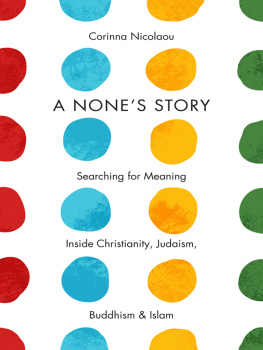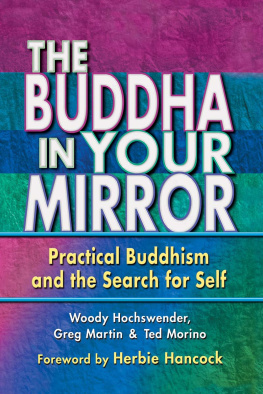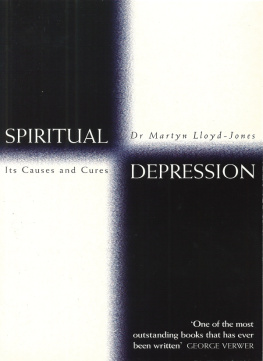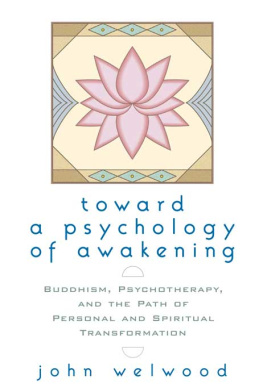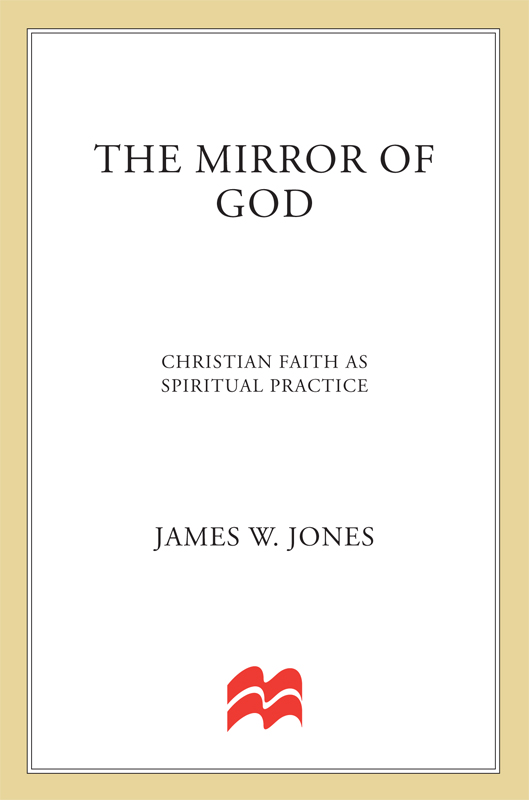Contents
Guide

The author and publisher have provided this e-book to you for your personal use only. You may not make this e-book publicly available in any way. Copyright infringement is against the law. If you believe the copy of this e-book you are reading infringes on the authors copyright, please notify the publisher at: us.macmillanusa.com/piracy.
Contents
For Kathleen
This book began as a series of lectures on spirituality and psychotherapy that I was invited to give at the Mountain Area Health Education Center in Asheville, North Carolina, in 1997. Over the ensuing years these lectures were continually revised and presented in a variety of religious and professional settings including the Center for Psychotherapy, Education, and Spiritual Growth in Oklahoma City, Oklahoma, in 2000. They also formed the basis for courses on spirituality and counseling that I taught at Union Theological Seminary in New York and Drew Theological Seminary in New Jersey. I want to thank all those who invited me to deliver these lectures and the many colleagues and students who provided valuable feedback and suggestions.
Professors Chung-fang Yu and Franz Metcalf carefully read and extensively critiqued the sections on Buddhism. Their hard work improved the clarity and accuracy of my discussion but any inaccuracies and misinterpretations of Buddhism that remain are entirely my responsibility.
This book grows directly out of a life lived on the boundary between spiritual practice and the practice of psychotherapy. Walking a tightrope between these two disciplines, as well as the rest of my life, has become much more gracious and joyful in the last few years because of the companionship of Kathleen Bishop. Our continual conversations and shared interest in the topic of this book have enriched and deepened not only this text but also my entire life.
New York City is full of churches: oases of calm amid the cacophony of blaring horns, shrieking sirens, rumbling and rattling subway trains. Recently a frantic New Yorker confessed to me that she longed to enter one of those gray granite and marble Gothic edifices and simply sit in a pew and absorb the peace she knew was there. But she couldnt, she said. She couldnt because she didnt believe everything the church taught.
How sad, I thought, that she deprived herself of the tranquility she desperately needed because she felt she couldnt believe something. And how could she ever come to believe anything more unless she was willing to do something more?
The heart of this book is the insistence that understanding requires doing. And understanding something new requires doing something new. A deeper spirituality requires a deeper spiritual practice.
Another conviction (demonstrated in decades of working with people) on which this book rests is that if you begin a spiritual practice and stick with it, you will discover new spiritual realities. Spiritual truth is not something to passively accept or mindlessly believe. Spiritual wisdom is for you to discover for yourself. Your practices are the means of this discovery.
This point, that Christian spirituality starts with practice and experience (rather than with, say, belief), is bound to be controversial. But it is, I think, the best way for us to approach the topic and its relevance for our daily lives.
Christian faith is really Christian practice: not trying to pretend to agree with concepts that make no sense to you; not straining to impose a code of conduct on your life that you know in advance you can never live up to. Rather, it is doing things that awaken or deepen the experience of the presence of God.
Why another book on spiritual practice?, you might well ask. Arent there enough already? What is different about this one?
This book is written from the standpoint of one primarily involved in Christian devotion. But I was trained in the discipline of religious studies and am a professor of religion at a secular state university with colleagues who include Hindus, Moslems, and Chinese and Japanese Buddhists. I have studied and taught a diversity of religious traditions, and have had firsthand encounters with Buddhist practices. So I seek to practice Christianity with an awareness of other religions. As will soon become clear, I think Christians can learn much about the spiritual journey from other traditions and, in my case, especially from Buddhism.
I also think other traditions have much to learn from Christianity. I approach the topic of spiritual practice from a world religions perspective rather than from the perspective of devotional Christianity, or Buddhism, or Hinduism alone. My hope is that whatever your religious tradition, or even if you belong to no tradition, you can find here new insights into the spiritual journey and the role of practice within it.
I also have a doctorate in clinical psychology and have written books and articles about psychotherapy and have worked as a therapist in college counseling centers, in a maximum security prison, in a working-class city, and in a suburban private practice. And I continue to teach and practice as a clinical psychologist. Since this book is written by a practicing psychotherapist, many of the examples and illustrations come from the work of psychotherapy. But many of the lessons learned in this kind of work have relevance beyond the walls of the doctors office.
Every author has an audience in mind when he or she writes a book. This book is written for you if you are a person who is fascinated with the growing interest in spirituality in our cultureperhaps your own interest or those of people you see around you, and you want to know more about what it might mean for you.
You may have belonged to a religious tradition all your life or you may not affiliate with any tradition or group. But you still find yourself interested in what you hear or see about spiritual practice.
Maybe you find yourself intrigued by the idea of meditation or some other discipline but are not sure what that interest really means.
You may be a committed Buddhist or Hindu practitioner or devout Christian or Moslem believer and you are wondering how your spirituality might be deepened or might affect more of your life.
Or perhaps you are involved in psychotherapy, either as a therapist or a patient or both, and youve heard that spiritual practices might be psychologically beneficial, and wonder if that is really true. And if it is true, what that really means.
Perhaps you saw a TV program about Tibetan lamas, or you recently ordered a book on how to meditate, or bought a CD of Gregorian chants from a Catholic monastery, or attended an adult education class on Zen Buddhist meditation, or a workshop on visualization based on the Kabbala. Or perhaps you go to church on Sunday mornings, or attend a small group that prays for the sick. You may have firsthand experience with a variety of such practices and want to understand more deeply a process you have been engaged in for some time.
Such is the audience I wish for this book.
The last few decades have seen an unexpected explosion of interest not only in spirituality but also in its possible connections with psychology and psychotherapy. Books are being published, conferences scheduled, lectures delivered all across the country on spirituality and psychotherapy. This makes sense in a culture in which psychological terms have become part of our everyday language, and psychological ways of thinking permeate all aspects of our life. A politician gets into trouble and we immediately want to psychoanalyze him. A criminal commits a heinous act and we look to his childhood for an explanation. We feel dissatisfied with our lives and we seek out psychotherapy in record numbers.


